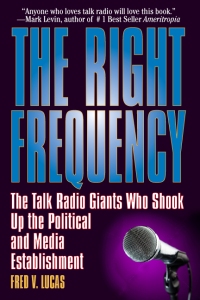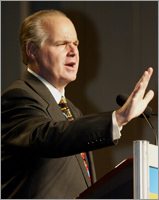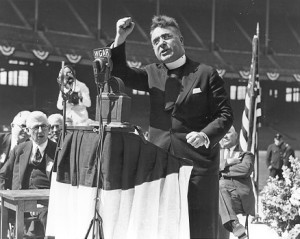Donald Trump has secured the Republican nomination, but still, many conservatives in the party don’t seem ready to accept him yet. The #NeverTrump movement took a body blow, but hasn’t bowed out in stopping Trump’s campaign for the presidency – even talking of fielding a conservative third party candidate.
Citing Trump’s donations to Democratic politicians and various left-leaning stances on trade, national security and health care, some conservatives wonder if Hillary Clinton would be any worse.
Or, as Alexander Hamilton said of a previous election: “If we must have an enemy as the head of government, let it be one whom we can oppose, and for whom we are not responsible, who will not involve our party in the disgrace of his foolishness and bad measures.”
Since political parties existed, there have been intra-party divisions. One of the most vicious came during the 1800 presidential election, when Federalist President John Adams stood re-election against Democratic-Republican Thomas Jefferson. That year many Federalists were aligned not against an outsider insurgent but against their incumbent president. Those opposing Adams as too moderate and backing Hamilton were known as the High Federalists, as examined in Tainted by Suspicion: The Secret Deals and Electoral Chaos of Disputed Presidential Elections.
It was perhaps Hamilton’s propensity to truly loathe political rivals, or even allow his emotions to create heated rivalries, that helped determine this election. He was extremely angry with Adams for being overly moderate and not going to full-scale war with France in 1798, a conflict in which he hoped to be a glorious general.
The break between the moderate Adams Federalists and Hamilton’s High Federalists helped make the president’s party dysfunctional against the Democratic-Republican well-organized apparatus. America’s first and still best Treasury secretary hated Jefferson for being a dangerous radical. As for Burr, it was probably based on more personal and practical reasons. Burr was an old rival in New York politics, whom Hamilton found loathsome and void of any moral compass.
As today, it’s easy to imagine elements of either party being so annoyed by sellout candidates they would just as soon lose the election, believing a defeat could even be better for their party’s future and ideological strength as opposed to a squishy moderate who will give away the store to the other side.
This was essentially how Hamilton felt about the choice of Adams and Jefferson. Hamilton said: “If we must have an enemy as the head of government, let it be one whom we can oppose, and for whom we are not responsible, who will not involve our party in the disgrace of his foolishness and bad measures.”
Hamilton – who would go on to be a deciding factor in the election – also wrote a letter that ended up being both a liability for him and for Adams. More from Tainted by Suspicion:
Hamilton’s 50-page letter excoriating Adams leaked into the Democratic-Republican newspapers. The surrounding publicity closed off any future hopes of Hamilton ascending to the presidency—and it didn’t do a lot of good for Adams re-election campaign. In a message targeted at Federalists in South Carolina, Hamilton wrote: “Few go as far in their objections as I do. Not denying to Mr. Adams patriotism and integrity and even talents of a certain kind, I should be deficient in candor, were I to conceal the conviction, that he does possess the talents “adapted to the administration of government, and that there are great intrinsic defects in his character, which unfit him for the office of chief magistrate.”
Burr got a copy and leaked it to Democratic-Republican newspapers around the country. The letter titled The Public Conduct and Character of John Adams ran to the great humiliation of the president and Hamilton.
Adams expressed his own frustration of Hamilton, even blaming him for the loss of New York: “Hamilton is an intriguant, the greatest intriguant in the world—a man devoid of every moral principal—a bastard… Mr. Jefferson is an infinitely better man, a wiser one, I am sure, and if President, will act wisely. I know and would rather be vice president under him or even minister resident at Hague than indebted to such a being as Hamilton for the presidency.”
(This post was originally published by Stairway Press blog.)



